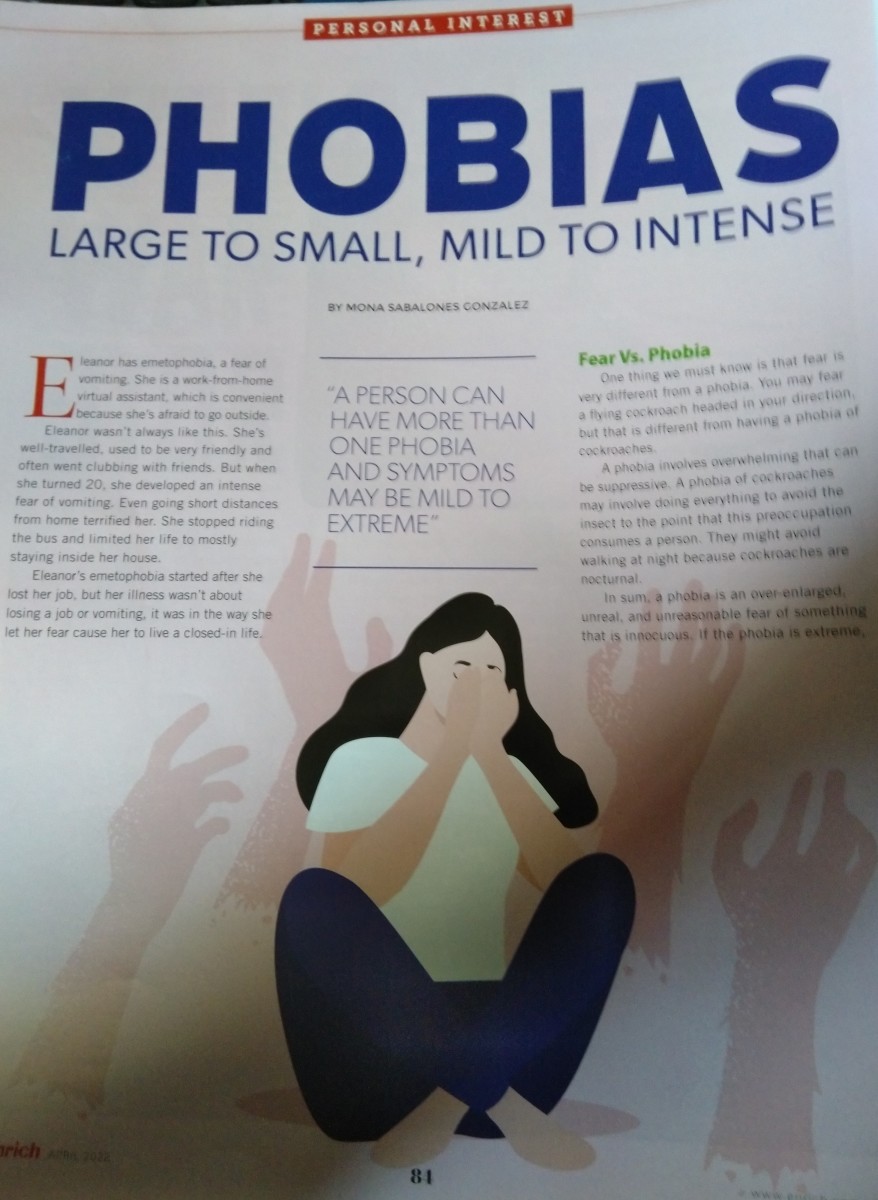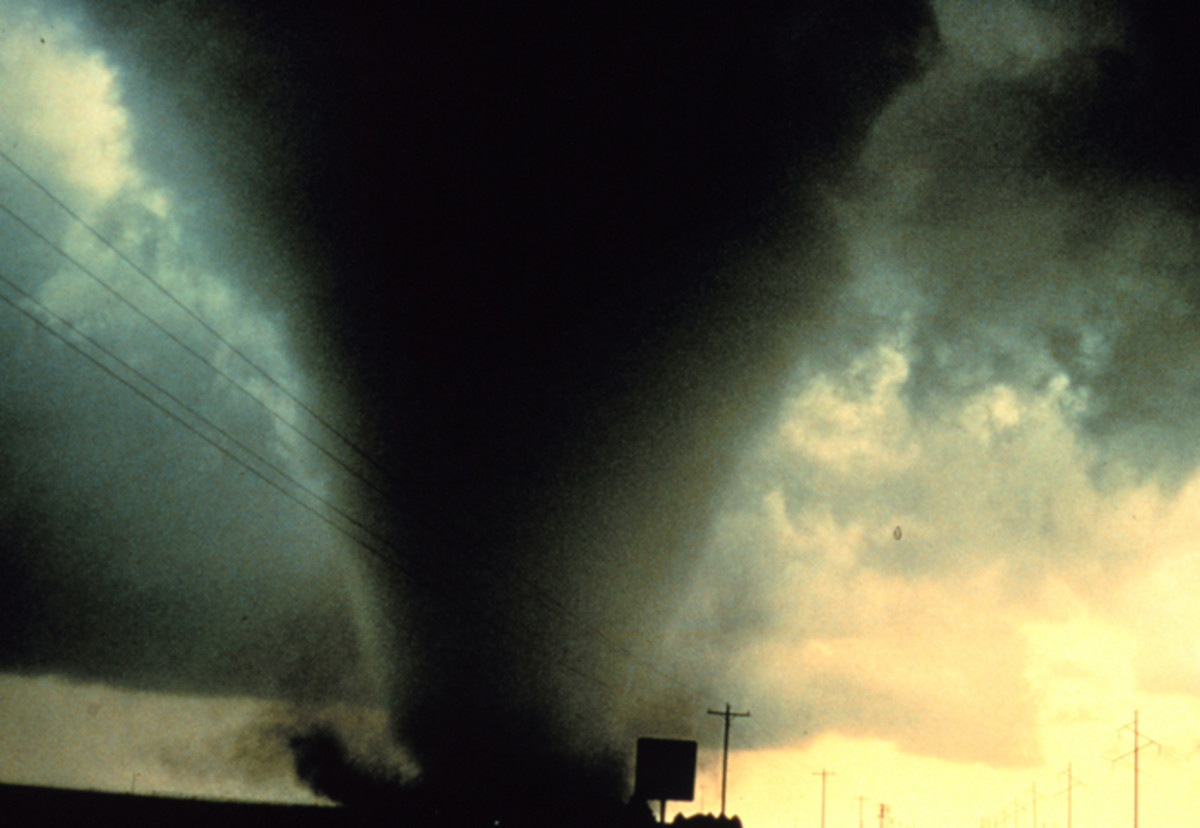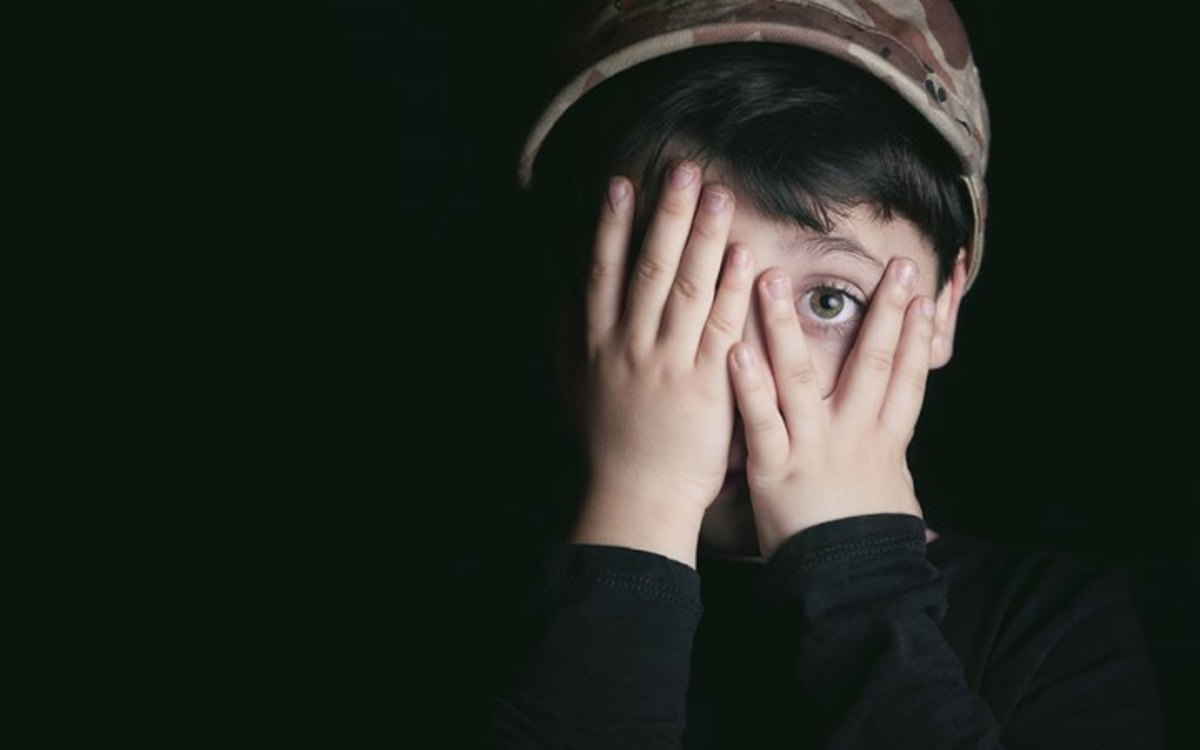- HubPages»
- Health»
- Mental Health»
- Anxiety Disorders
31 Phobias: #5 the Fear of Heights, Falling & Flying
The Fear of Heights

Acrophobia
An Extreme and/or Irrational Fear of Heights
Those who suffer from Acrophobia will often experience a panic attack that will disable them from getting down safely. When these attacks occur it puts the sufferer and those around in danger, especially in extreme conditions. Fortunately, those who suffer from Acrophobia never seem to put themselves in that position in the first place.
The cause of Acrophobia
Like most phobias, this was usually believed to be caused by a traumatic experience involving a high place. However, there have been recent studies that put doubt on this theory. Acrophobia is believed to be a non-associative fear such as falling or even loud noises.
A person does not need to experience a traumatic event in order to develop a fear. For example, it is perfectly natural for a person to be afraid of falling. It's when your behavior becomes irrational and/or interferes somewhat with your everyday routine. When this starts happening, you may have developed a non-associated fear. Therapy followed with counseling should be suggested but always see a physician first before making any decisions
Treatment
Currently there are several promising studies involving virtual reality as being a possible way to help cure (or at least control) their Acrophobia. Unfortunately, this is still in the "testing phase" and is not available to the public at the moment.
However, at this time, the most popular method for treating phobias such as Acrophobia is cognitive-behavioral therapy (CBT).
The Fear of Falling

Barophobia
An Extreme and/or Irrational Fear of Falling
An Extremely Common Phobia
You would think that a person who suffers from Acrophobia is because he/she is afraid of falling. This is somewhat true, but there's more to it.
A person who is afraid of heights may be able to handle standing securely on a six foot ladder next to an open stairwell. However, a person fearful of falling would probably not be able to handle such a task, for fear of falling down the open stairwell.
For me, it's not the falling I'm scared of...it's what might become of it.
-A Barophobia Sufferer-
Senior Citizens Developing Barophobia

Developing Phobias
How Phobias Develop
The complete understanding of how & why a phobia develops is still unknown. However, experts on the subject seriously suggest that traumatic events may trigger certain fears which may, in turn, interfere with daily life. When a persons fear starts to interfere with a persons daily routine it may be considered a phobia.
If you feel that you, or someone you know suffers from an irrational fear, seek medical attention as soon as possible.
Aerophobia
The Fear of Flying
One of the most common phobias of them all
The fear of flying is a common phobia. Although experts believe phobias have been around since the stone-ages, the fear of flying is believed to be a "rather new phobia" (since the invention of the airplane).
A person doesn't have to experience a traumatic event like a plane crash to develop Aerophobia. A person may just has to watch a plane crash to develop this "understandable" phobia.
The fear of flying won't necessarily interfere in a persons daily routine (unless they travel for a living). A person with a phobia, such as Aerophobia, can live a normal life (on the ground) with very little or no medical problems concerning the phobia.
Understandable Phobias
An understandable phobia is a phobia that most people understand. The fear of flying, heights, drowning, elevators and even sharks are considered an "understandable phobia".
However, there are people who consider some phobias just "silly" and are treatable.
They couldn't be further from the truth.
All phobias are considered serious and treatment is needed for all cases - no matter what phobia exists.
What is a Phobia?
Phobia (Greek: φόβος phóbos, "fear, morbid fear") is a type of anxiety disorder when used in the context of clinical psychology. It is usually (in definition) as a constant fear of an object or situation in which the sufferer will go to great lengths to avoid the actual danger posed, typically disproportional to the situation at hand. Their behavior is often recognized as irrational.
If the phobia cannot be avoided entirely, the sufferer will possibly make an embarrassing scene (to others or to themselves) obviously because they feel they (or others) are in danger.
This content is accurate and true to the best of the author’s knowledge and does not substitute for diagnosis, prognosis, treatment, prescription, and/or dietary advice from a licensed health professional. Drugs, supplements, and natural remedies may have dangerous side effects. If pregnant or nursing, consult with a qualified provider on an individual basis. Seek immediate help if you are experiencing a medical emergency.
© 2014 James Timothy Peters








